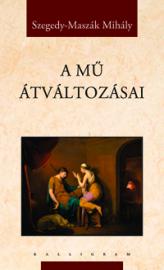
A mű átváltozásai
The sixth book of his life work series spring from an assumption that an artwork hardly examinable in itself, unseparatable from it's mode of existance, it's always gets into new contexts and changes because of this.
More...We kindly inform you that, as long as the subject affiliation of our 300.000+ articles is in progress, you might get unsufficient or no results on your third level or second level search. In this case, please broaden your search criteria.

The sixth book of his life work series spring from an assumption that an artwork hardly examinable in itself, unseparatable from it's mode of existance, it's always gets into new contexts and changes because of this.
More...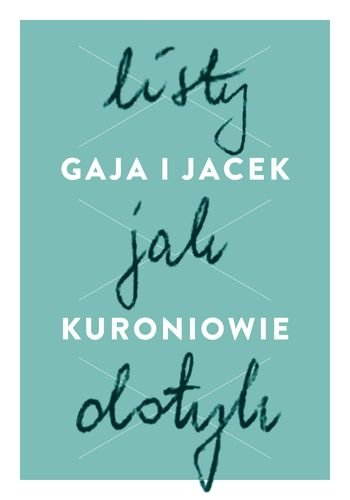
“Letters like a Touch” (1965–1982) is a fascinating story of an exceptional feeling between one of the most important oppositionist, Jacek Kuroń, and his prematurely deceased wife, Gaja (Grażyna) and, at the same time, a historic testimony of the Polish People’s Republic which has been unknown so far. Jacek Kuroń spent a total of 10 years in prison, arrest, or detention centre. The basic form of contact then consisted of letters written chiefly to Gaja. It is a unique correspondence in many respects: for years it was kept by the security service, and, today, it helps to understand the reality of crucial moments in the history of the Polish People’s Republic. Jacek’s prison pictures alternate with the description of Gaja’s everyday life at large. We can find deep reflections in them or echoes of readings, we can witness the birth of many concepts which were later transformed into great ideas changing the history of Poland.
More...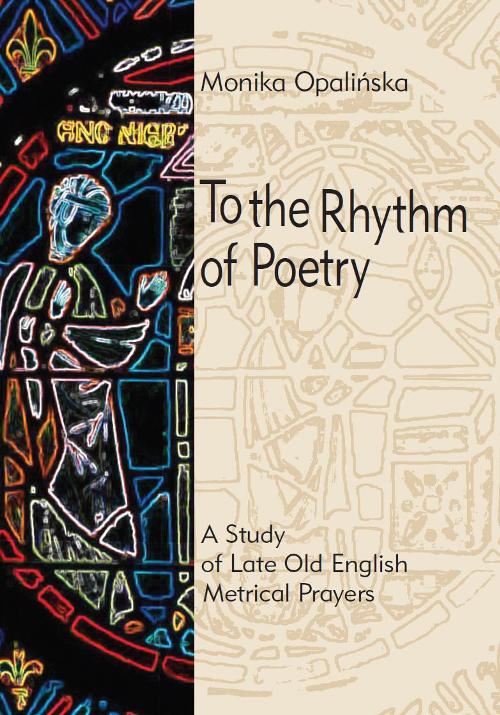
Compilation of a group of Old English religious texts from the mid-11th century. The analysis includes versified psalms from the Paris Psalter and metric paraphrases of the liturgical texts Credo, Pater noster and Gloria Patri. The author focuses on the language and the metric structure of the poems, uses manuscripts, comparing the medieval record with the editorial interpretation. The publication shows to what extent anonymous Anglo-Saxon masters managed both to remain faithful to the content of the translated or paraphrased Latin works, and to maintain the formal features of an Old English poem.
More...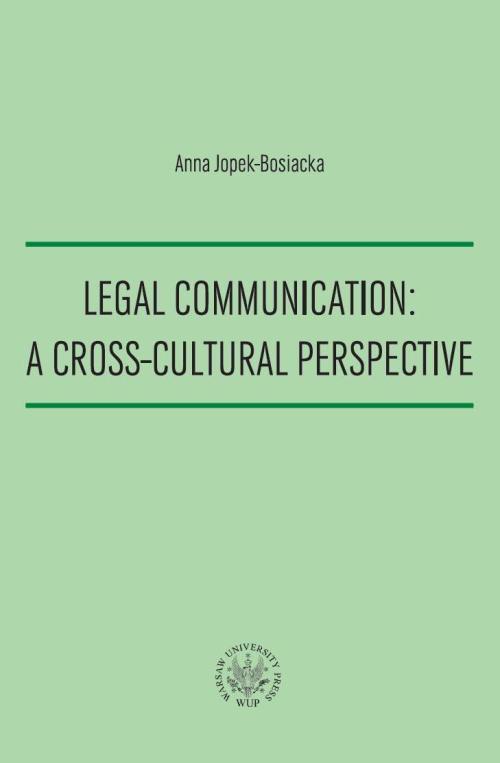
Legal Communication: A Cross-Cultural Perspective proposes an integrated interdisciplinary framework for describing and explaining legal communication. The pragmalinguistic analysis of English and continental legal discourse combines two areas of expertise: linguistics and jurisprudence. Legal discourse is treated as an instance of cross-cultural communication and explained against tendencies of globalization and Europeanization.This book is intended for legal translators and interpreters as well as other specialists in the legal domain, first of all legislators, judges and academics specializing in theory and philosophy of law. It brings both lawyers and linguists closer to the understanding of legal texts in new contexts of legal communication.
More...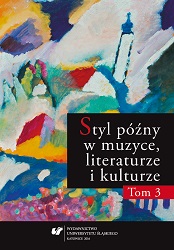
Two further volumes of The late style in music, literature and culture, i.e. volumes three and four, consist of lectures which were delivered at a conference which was organised in 2014 by the Academy of Music in Katowice and by the University of Silesia. This was a third meeting of the series “the late style”, which was attended by musicologists, theoreticians of music, specialists in the field of history of art, cultural studies and philosophers. The set of problems discussed in both of the publications is proof that the phenomena of “lateness” and “decadence” continues to be a source of controversy and that they elude attempts at unambiguous classification and description.The third volume consists of articles associated with the problems of the late style in European culture starting from the 18th century. The problems which were discussed, ones that are examined by the authors from the perspective of the late style and “decadence”, include the following: Polish Enlightenment artes poeticae of Golański, Dmochowski and Krasicki, the empire style in the context of the entire period and Hegel’s thinking, Brahms’ Klavierstücke op. 118 as a cycle, the music of the Burgundian school and the works of the French composers of the end of the 19th century, Gabriel Fauré’s Piano Trio in D-minor op. 120 against the background of his chamber music works, Nowowiejski’s 4th Symphony op. 58 and a solo organ musical poem, In Paradisum op. 61, the individualism of Rachmaninov’s style, Mahler’s works, “decadence” in the novels of Wilde, Joyce and O’Brien, Lawrence’s poetic works in the perspective of the aesthetics of existence and Said’s book On Late Style, the rhetoric of dynamic “staticness” as a new philosophical and cultural paradigm.
More...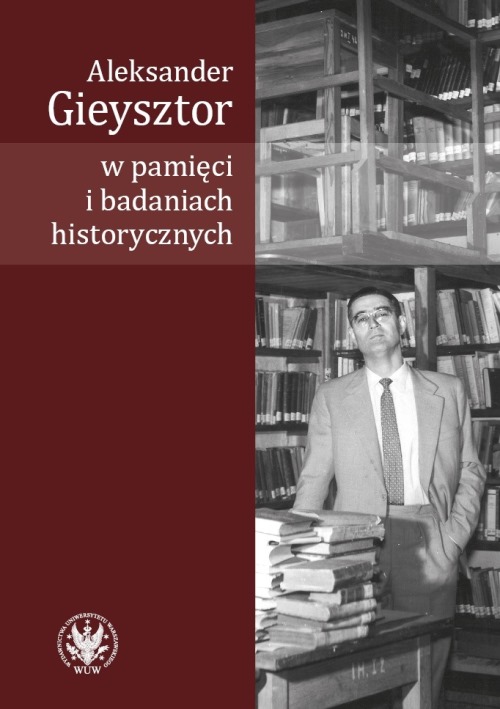
The publication was inspired by the celebrations of the hundredth anniversary of the birth of Professor Aleksander Gieysztor (2016). It contains memoir texts and essays written as a result of the deep scientific reflection on the work of this outstanding scholar. Most papers are devoted to Aleksander Gieysztor as the director of the Institute of History at the University of Warsaw. The book also discusses Professor’s role in shaping the ceremonial of the University of Warsaw.
More...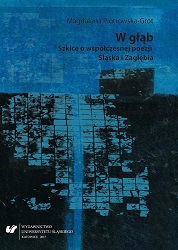
The following publication constitutes the aftermath of a research project concerned with contemporary poetry of Silesia and the Dąbrowa Basin. The author does not, however, focus on a synthetic approach, attempting to assign particular poets to distinct schools and poetic groups, since that groundwork has already been laid by previous research on the topic, resulting in interesting and exhaustive – at least for the moment – conclusions. The following monograph constitutes rather an analytical and interpretative study which concentrates upon the deep semantic strata of the discussed works, showcasing important changes which the poetry of the region is undergoing, as well as its diverse, eclectic and dynamic character. The essays concern selected poems by writers coming from the territory of Silesia and the Dąbrowa Basin. The analysis and interpretation oscillate primarily around the different ways in which space is imagined and created in the worlds created by the selected authors – Maciej Melecki, Krzysztof Siwczyk, Grzegorz Olszański, Marta Podgórnik, Marek Baczewski, Paweł Lekszycki, Paweł Sarna, Paweł Barański. Nonetheless, it should be emphasised that it is a distinctively and broadly understood space, which encompasses both real places as well as non-places (Marc Aúge), both utopian and heterotopic visions whose examples can be found in the selected poems. While speaking of nonplaces, it is important to remember about the eschatological dimension, which appears commonly in the discussed poetry, while remaining anti-metaphysical in character as the poets of the region showcase in their poetry the progressing implosion of myths and images of archetypal places. In this way, the readers of their poetry can seamlessly transition from the imagery of space to existential issues (approached from the anthropological/anthropocentric, but also post-humanist perspective).The imagination of the discussed poets, while functioning in distinctly varying ways, seems to remain informed by the postindustrial space of their quotidian experience and allows us to easily grasp the points of convergence, which constitute the poetic imagination of the selected poets. It should be, however, noted that the space, which constitutes the departure point for the subsequent analyses, functions in the poetic world not only as the backdrop but also as theco-participant of everything that transpires. The world around the people who appear in the poems is molded by their influence, but in turn, the people are also molded by their environment. This coexistence of man and space in the analysed poems, in turn, allows for interesting and surprising readings. Speaking of the peculiarity of space functioning in the poems, it is necessary to note that the subject of the particular analyses includes also the space of the text itself – its form, genological references, the particular texture of places (a term coined by Elżbieta Rybicka) created by a given text of culture, which significantly influences literary works. The following monograph contains research findings which, even though they lie within the scope of the author’s PhD dissertation, constitute an attempt at bridging the gap between the previous research project, expanding upon its findings, and at the same time aim to lay the groundwork for a new academic study.
More...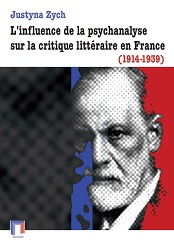
The monograph discusses the presence of psychoanalysis in the French literary criticism in the years 1914–1939. The analysis of critical works written in this period and relating to psychoanalysis reveals a clear evolution within this methodological orientation – from the first, often superficial attempts at transplanting Freud’s method directly to the discourse on literature, to mature critical proposals only referring to psychoanalysis or adapting it creatively to their own purposes.
More...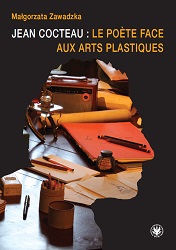
The book contains the analysis of the plastic and film works of Jean Cocteau as well as his writings related to the plastic arts. Cocteau was a many-sided artist: a writer, a poet, a painter, a drawer, a playwright, a theatre and film director, an art.. And literary critic. First chapter concerns art.. Criticism by Cocteau; second one is devoted to his poetry inspired by painting, sculpture, architecture and photography, as well as to the volumes illustrated by other renowned artists; in the third one Cocteau’s own visual works are presented.
More...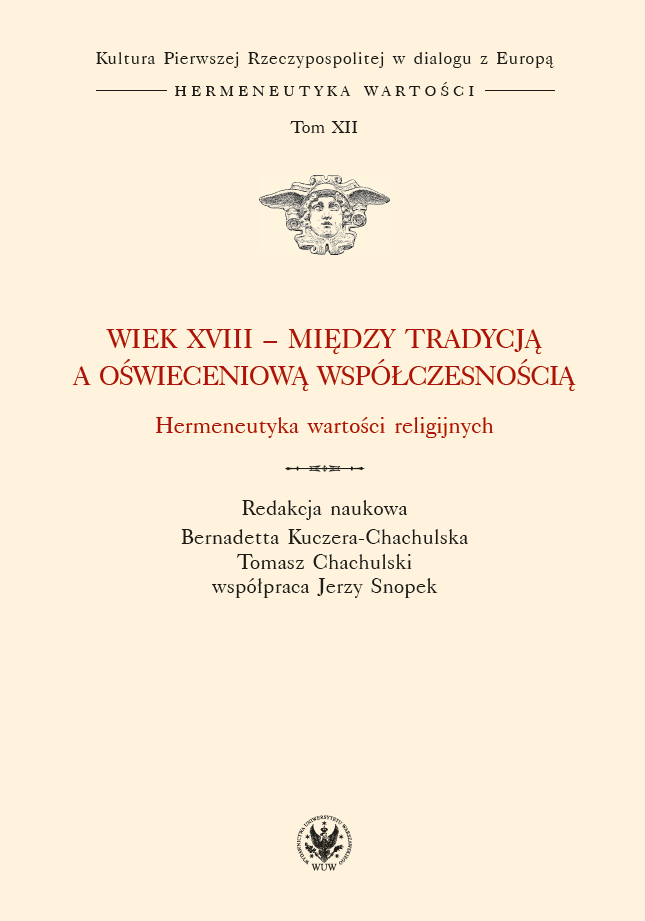
A collection of papers concerning axiological problems in the late Baroque poetry, the presence of biblical tradition in the Enlightenment religious poetry, the renewal of church life, religious education in noble colleges, attitudes towards deism noticeable in literature, religious awareness of the outstanding poet Ignacy Krasicki, religious transformation in the Jewish circles in the 18th century and the Jewish question in the Enlightenment disputes about value. The volume closes with the analysis of literary works of the early Romanticism, presenting how the most important axiological problems of the 18th century were perceived by the representatives of the next period.
More...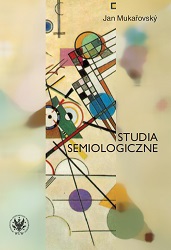
The publication contains two texts by Jan Mukařovský, translated by a bohemist Aneta Daszuta, concerning the sign character of art. (including literature as the art. Of words). It shows the importance of the semiological reorientation, which took place in the 1930s and was mainly caused by Jan Mukařovský, for the history and development of the Prague school of structuralism.
More...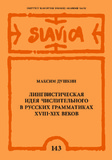
This book sets out to analyze how the idea of the numeral developed in Russian grammars over the course of the 18th and 19th centuries. In the first works on grammar, the numeral was not treated as a separate part of speech. Some scholars identified numerals with adjectives, others viewed them as a group of words the meanings of which are associated with number and which belong to one of two basic types of the name (i.e., nouns and adjectives), while yet others saw in numerals a separate, third type of the name. Later on, when nouns and adjectives were no longer considered as subtypes of one part of speech (the name), many scholars still did not regard numerals as a separate part of speech but identified them with, e.g., adjectives. In terms of composition, the class of numerals was represented differently by different authors but it always encompassed the words “три”, “пять” etc. (so-called definite cardinal numerals) and usually the words “третий”, “пятый” etc. (ordinal numerals).
More...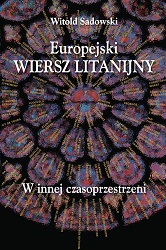
The publication deals with the poetics of European litanic verse. Its subject matter is genre, rhythm and rhetorical figures, as well as comparative versification, portrayed against the background of the cultural identity of Europe. These themes are analysed in close relation with a reconstruction of the implied philosophy of the litany, especially its cosmological principles. The study covers a period from antiquity to the middle of the 19th century.
More...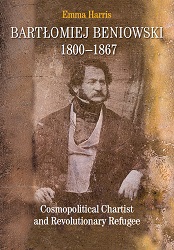
This is the first reconstruction in either Britain or Poland of the life of Bartłomiej Beniowski, a Polish post-1831 émigré who was the only foreign refugee to play an identifiable role in early London Chartism.It places Beniowski’s Chartist record in the context of his earlier political affiliations, and explores his post-Chartist political allegiances. It investigates his success in 1840s London as a mnemonist who developed a system that he called “Phrenotypics,” and his invention in the 1850s of printing techniques which were taken up for commercial exploitation by a group of entrepreneurial Liberal M.P.s.It is the biography of an exceptional and colourful individual, acted out against a vast multi-cultural backdrop, from tsarist Russia to Liberal England via Orléanist France and Muhammad Ali’s Egypt. It reveals a life-long commitment to the cause of Polish independence, along with consistent advocacy of democracy and championship of the oppressed, including vocal campaigns for Jewish civil rights. It provides the narrative of a life that illustrates contemporary European political and social movements and their bearing on 19th-century British labour history.
More...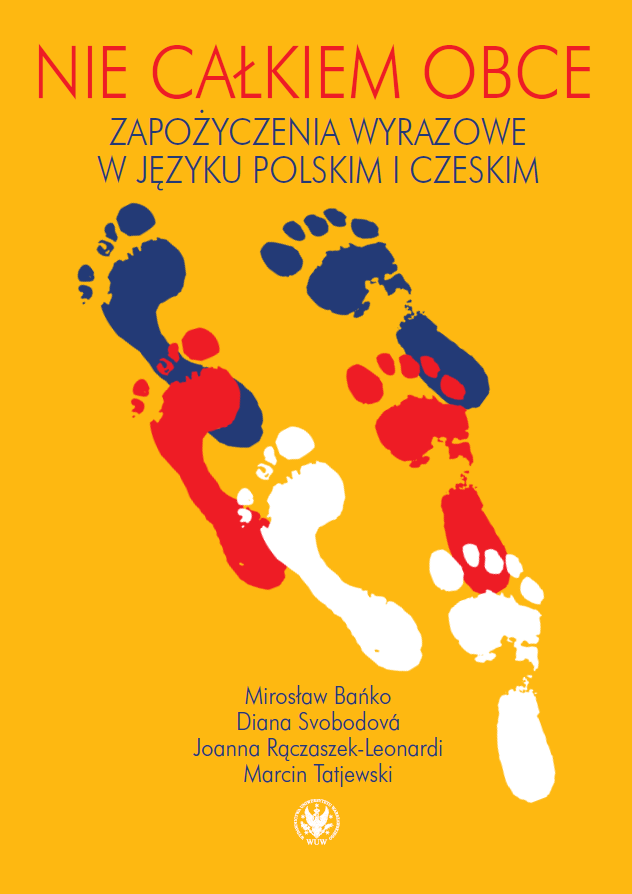
The publication is the result of the research project APPROVAL (Adaptation, Perception and Reception of Verbal Loans) on the adaptation of foreign words in Polish and Czech. It analyses loanwords proving that cultural contacts across the borders and languages existed and the languages took over words during their historical development and did not inherit them from their protolanguage. The book combines a linguistics and psycholinguistics approach and has two versions: Polish and Czech.
More...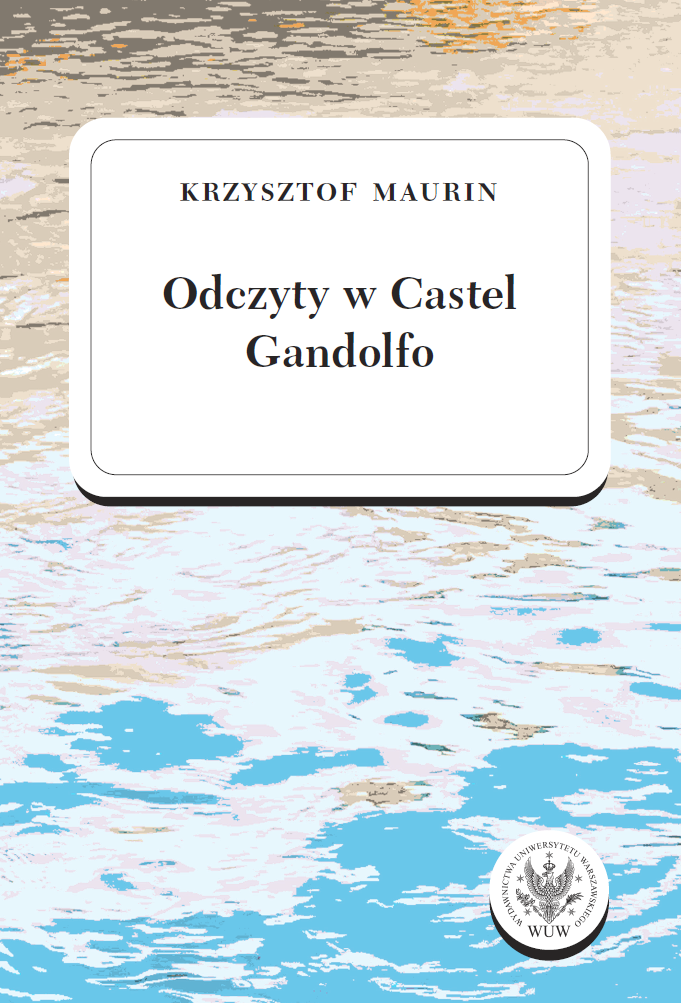
The first volume from a three-volume series of Krzysztof Maurin’s works – a distinguished physicist, the founder of the Polish mathematical physics school as well as a philosopher and thinker– contains three articles, previously published in scientific journals: Mathematics as Language and Art, Logos (Language) and its Cosmological Role, and Tradition and Progress in Science, Philosophy, Religion (divided into three parts in this publication in accordance with the author’s intention). Subsequent volumes will include texts prepared by the author for the books he was not able to publish selected and edited by Prof. Maurin’s fellow researchers and friends.
More...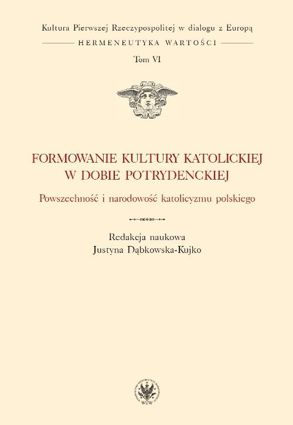
Volume VI of the series shows not only the peculiarity of the religious culture of the First Polish Republic, the character and specificity of the "Sarmatian" piety, but also reveals the basic paths of development of this culture in connection with the thought developed in parallel by Catholic thinkers and writers in Western Europe. The research focused on the issues of opening up Polish post-Tridentine culture to the dynamics of the development of religious thought in other European countries, the ability to conduct dialogue with a foreign culture, and the possibility of adaptation, assimilation and transformation of foreign theories or ideas for the needs of indigenously Polish culture. The authors of individual dissertations try to answer the questions, on the one hand, about the scope and degree of involvement of Poles in the process of the renewal of Catholicism in Europe, about their participation in European discussion forums, about the knowledge of the Sarmatians' writings and the impact of these writings in the model of the post-Tridentine renewal of the Church and Catholic religious culture, on the other hand - about the ways of fresh counter-reformation ideas entering the Republic of Poland, the absorption, demand and methods of introducing conciliar decisions into the practice of religious life and the literature of the post-Tridentine times. The 12-volume series of the monograph "Kultura Pierwszej Rzeczypospolitej w dialogu z Europą. Hermeneutyka wartości" presents the cultural heritage of the 15th and 18th centuries as an integral but original part of European culture. The research goal is to identify the ways and forms of the mutual transmission of aesthetic, political and religious values and to present in a broad, multilateral comparative context the axiological structure of the Polish culture of old times. Cultural texts are examined from an internal perspective as records of acts aimed at understanding values, and from an external perspective as statements that join European literary-aesthetic, political and religious discussions. In an intense dialogue, the culture of the Republic of Poland shows not only a receptivity to new ideas, but also creativity and dynamics of action in Europe.
More...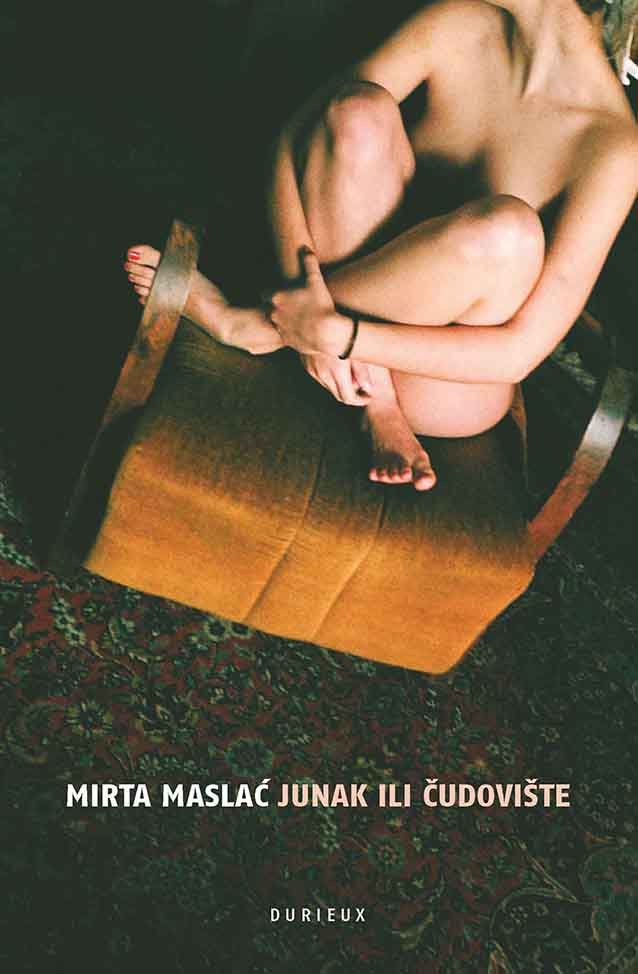
Junak ili čudovište, a novel by Mirta Maslać, is autobiographical in tone, but any stricter categorising would exclude an entire range of its completely heterogeneous elements. This is a diary of an illness and rehabilitation that functions also as a book about pop-culture and art, and about the way that motifs and narratives of the literary avant-garde, rock, and TV series shape our subjectivity. The novel that, besides familiar genre places, offers a merciless insight into the body as the uncanny locus of trauma, presenting the self-destruction without any romanticising. Despite the subdued black humour that colours this whole story, somebody will probably read it as a confession or testimony, a narrative shaping of one's own life in the perspective of existential crisis, maybe even death. But here, the struggle for authenticity is somewhere else, beyond the questions of truthfulness. Hero or Monster shows how, using a certain cultural repertoire, the self can »theatricalise« itself to itself, not for the sake of spectacle, but for the sake of self-reflection. That is the reason this novel is about a peculiar »taming of a monster«: a hard-laboured procedure of discursive creation of something that until now looked only as an unspeakable, unthinkable quantity, trauma generator, and pure danger. This taming is done by writing. Mirta Maslać was born in 1993, in Zagreb. She graduated in comparative literature and Croatian language and literature from the Zagreb Faculty of Humanities and Social Sciences. She published a theoretical study on the vocabulary in drag practices, and the novel Hero or Monster.
More...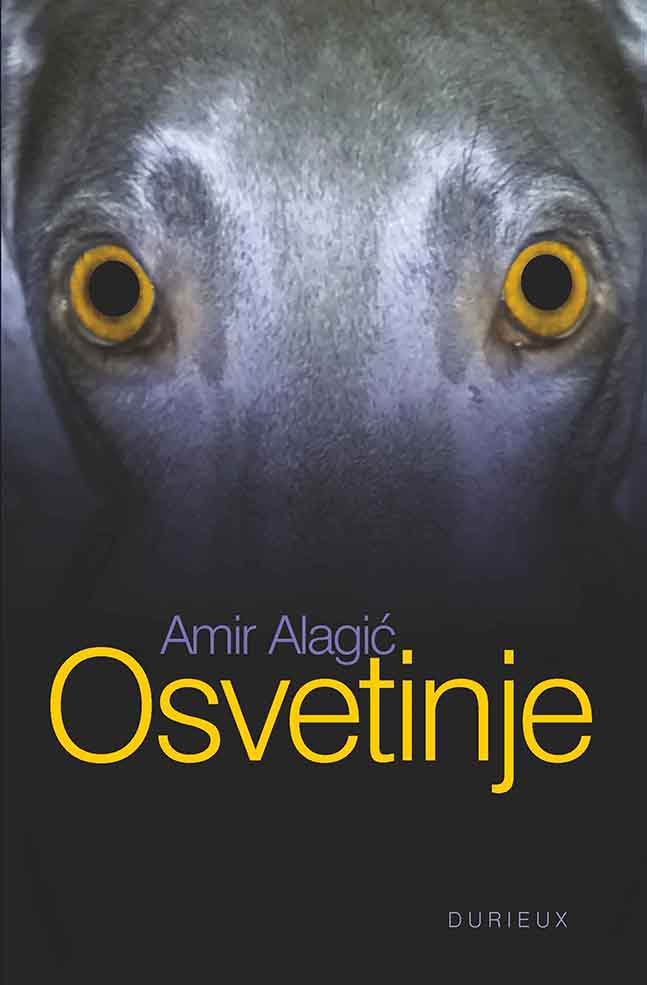
Considering the difficulty of the novel's theme, the composure of narration, and the writing skills, one would not think The Sacravenges was Amir Alagić's debut novel. Alagić elevates the art of narration to an exceptional level, so much so that each of the characters becomes a novel in itself – there is nothing too insignificant for the author, and he is able to discover infinity in details. Sadly, people from the seaside town, which is the novel's setting, dedicate their inner infinity only to revenge. They are crumbling inside like their country that has descended into war. Although aware they are hurling into a terrible eternity, they have decided to taste the infernal agonies during their lifetime. Amir Alagić was born in 1977, in Banja Luka. So far he has published the novels The Sacravenges (2016), Hundred Years' Childhood (2017), and Tunnels (2019), and the short story collections Under the Same Sky (2010), and The Lines Which You Call Rivers. He published short stories and poems in various literary magazines and anthologies. He wrote a screenply for the short feature film Toying, or a Broken Water Heater (2012). He lives in Pula.
More...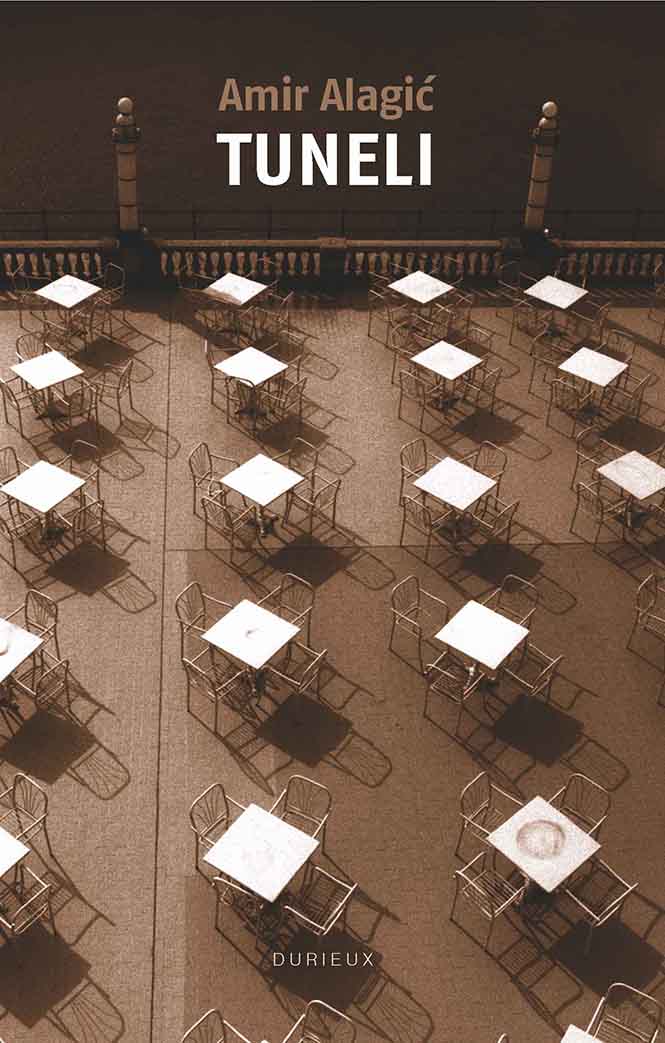
On a New Year's Eve someone – the narrator or destiny – threw their web over the city. In Amir Alagić's new novel, Tunnels, the sudden death of a stranger in a bar multiplies in a game of mirrors. The game reveals that apparently random bar guests are connected by invisible tunnels. If we decide to venture through those tunnels, we will embark on a dangerous journey and risk getting nothing in the end. Maybe there is no light at the end of the tunnel, but it is enough for this fascinating story to light our way. Amir Alagić was born in 1977, in Banja Luka. So far he has published the novels The Sacravenges (2016), Hundred Years' Childhood (2017), and Tunnels (2019), and the short story collections Under the Same Sky (2010), and The Lines Which You Call Rivers. He published short stories and poems in various literary magazines and anthologies. He wrote a screenply for the short feature film Toying, or a Broken Water Heater (2012). He lives in Pula.
More...